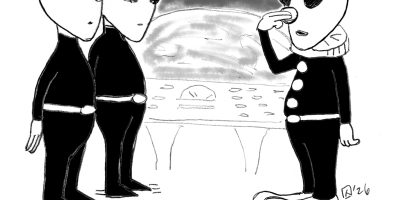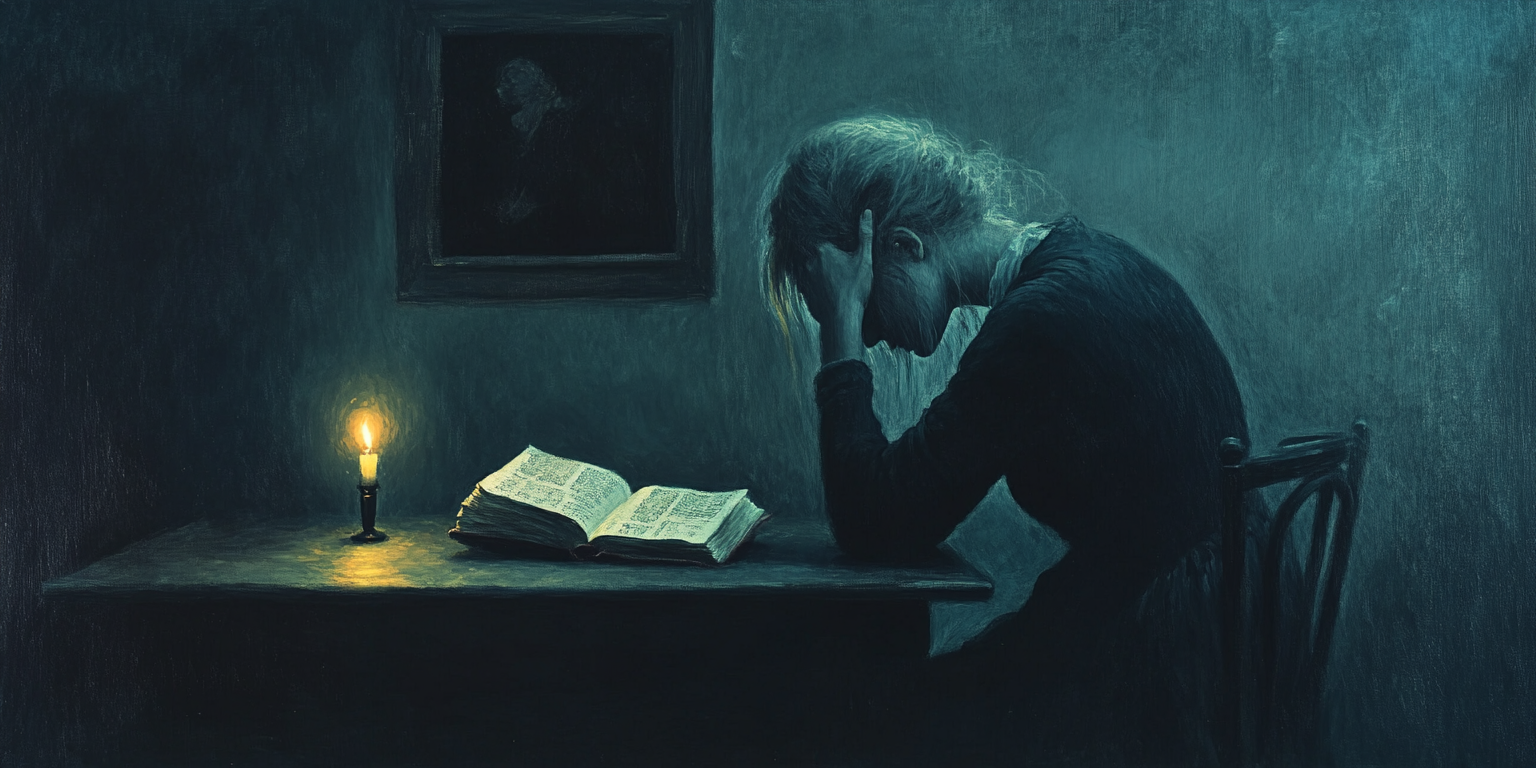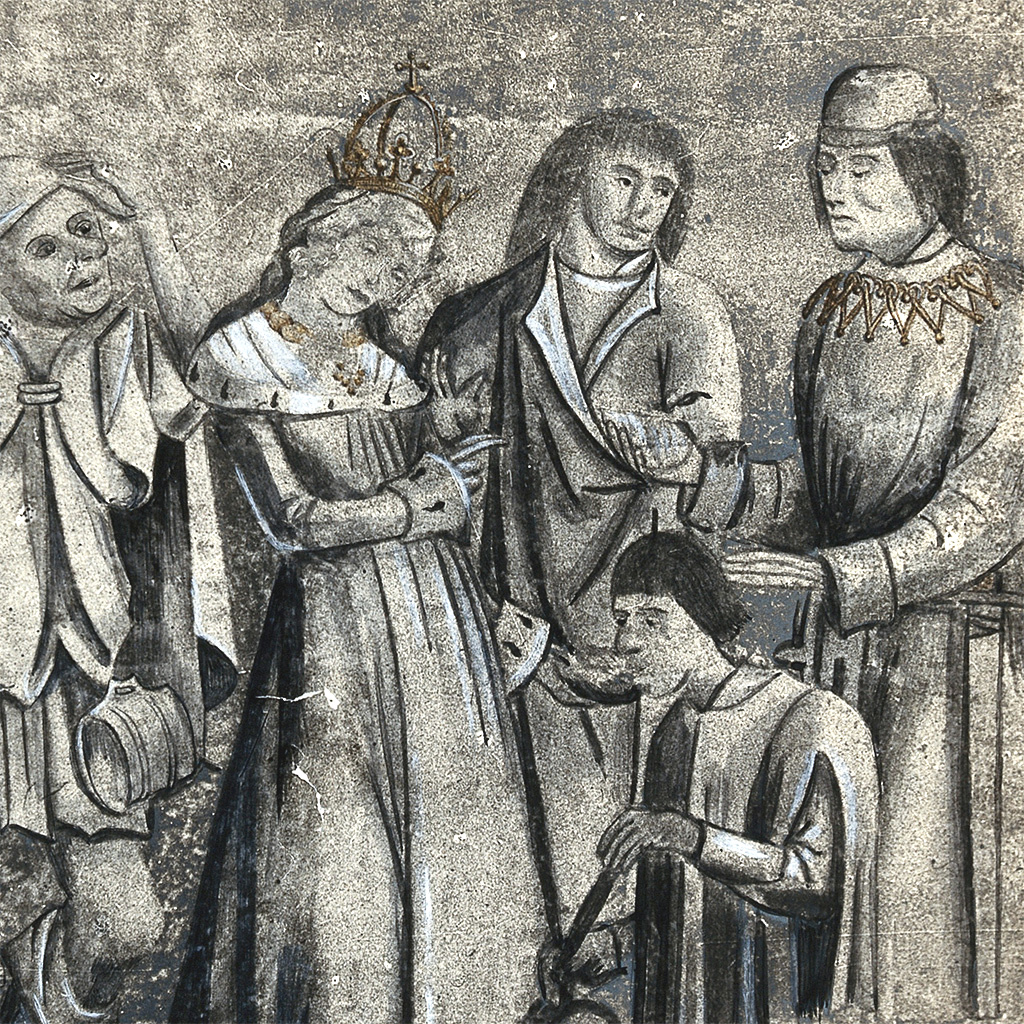When a Christian or Muslim or Jew wakes up for a new day, what does he or she see when they look out into the world and consider the greatest challenge to be overcome?
In all directions, these believers of many theological stripes see sin—some form of betrayal of God’s will—as the fundamental problem. Famously, there are many ways to sin—reflected in a hundred different flavors, varieties, and places. But through the eyes of the faithful, that’s what we are most basically dealing with in our struggle to improve the world—with everything going wrong and causing suffering potentially classified as a kind of sin.
By contrast, when a devoted believer in the ideology of social justice wakes up and looks out into the world, what do they see as the great and essential problem facing society?
Inequity, largely—far more than “iniquity.” This kind of inequity or unfairness, likewise, comes in a hundred different flavors, varieties, and places. In the minds of these adherents to this worldview, that’s what we are most basically dealing with in our struggle to improve the world.
As an illustration, one social media influencer wrote in a 2021 Instagram post, “The biggest threat to families is gender inequality. Gender inequality is threatening families—the imbalance of power in families, the unequal access to family resources, the devaluation of caregiving, rigid gender roles, intimate partner violence, the disproportionate amount of women and children living in poverty.”
What will it be: Iniquity or inequity?
Some, I recognize, will chafe at any suggestion that these contrasting views represent a forced choice dichotomy—insisting that no such bifurcation is needed. While sympathetic to and supportive of such integration impulses (especially those of the “bring all truth to Zion” variety that carefully avoids any sort of corrupting syncretism), for purposes now, I draw attention to these schools of thought as jealous masters, which cannot be served well at the same time.
So, what will it be: Iniquity or inequity?
An all-pervasive reality. The answer, to an increasing number of Americans, is the latter. As University of Columbia professor John McWhorter summarizes on the issue of race:
Many people are under the impression that change for Black America can only happen in a real way if the rest of America is united in a profound understanding of what Black people have been through. This means that they see battling power differentials wielded by whites as central to intellectual and artistic endeavor and any questioning of this as “white supremacy.” I question these lines of reasoning—I want true change for Black America but do not see this kind of psychosocial reprogramming as necessary to it.
While praising earlier generations of civil rights work, McWhorter objects to what he calls “Third Wave Antiracism.” Whereas the first wave of antiracism battled slavery and its remnants in legalized segregation, Second Wave Antiracism in the 1970s and ’80s combatted racist attitudes and taught America that being racist is a moral flaw. These are both distinct from “Third Wave Antiracism,” becoming more mainstream in the 2010s, which teaches, in his words, that “because racism is baked into the structure of society, whites’ ‘complicity’ in living within it constitutes racism itself, while for black people, grappling with the racism surrounding them is the totality of experience and must condition exquisite sensitivity toward them, including a suspension of standards of achievement and conduct.”
As this wise scholar goes on to say:
The general idea is supposed to be that whatever kind of Black person you are, you are constantly undergoing all of these racist slights from the cops and everywhere else. And it doesn’t matter what social class you are, it doesn’t matter what shade of Black you are … what neighborhood you’re in, you are always under siege from, you know, at least microaggressions. So it shouldn’t matter that you wear cardigan sweaters and like musical theater and my ex-wife was white, etc., because supposedly anybody Black is going through the same experience, because racism is everywhere.
Racism is everywhere. And sexism is everywhere. And classism and heterosexism are everywhere, etc. These, of course, are the kinds of things Christians would say about sin itself—and why these more popular claims present such a striking contrast, representing as they do newfound articles of faith.
Not everyone believes these new dogmas that are being taught, however.
Straining logic. In the BBC audio-documentary The Church of Social Justice, McWhorter is quoted further as saying, “We are sternly told that even a white person who grows up in poverty and has a life more hideous than that of most black people in the U.S. is still supposed to think about themselves as fundamentally privileged. It strains logic, but you’re just supposed to accept it.”
There are other doctrines equally challenging to accept within prevailing social justice thought. In that same documentary, the producer Helen Lewis reflects on the Catholic doctrine of transubstantiation—wherein the wafer of communion is believed to become the actual body of Christ. Lewis compares this insistence that “this wafer is the body of Christ” to an insistence that “trans women are literally women—and there is no leeway.”

There is a dogmatism to this strong and fervent insistence. “Whatever color you are, in the name of acknowledging ‘power,’” McWhorter continues, “you are to divide people into racial classes in exactly the way that First and Second Wave antiracism taught you not to, including watching your kids and grandkids be taught the same, despite that progress on racism has been so resplendent over the past fifty years that an old-school segregationist brought alive to walk through modern America even in the deepest South would find it hard not to turn to the side of the road and retch at what he saw.”
Those who can see the truth. All this represents quite a mental seachange—and one which requires some significant exposition. Thankfully there are people up to the task.
Borrowing a term from the author Joseph Bottum, John McWhorter refers to the prophets of the Third Wave as “the Elect.” They see themselves as “bearers of a Good News that, if all people would simply open up and see it, would create a perfect world.” This “priestly class” of “a few highly influential writers” includes most prominently, Ibram X. Kendi (How to Be an Antiracist), Robin DiAngelo’s (White Fragility), Nikole Hannah-Jones (The New York Times’s 1619 Project) and Ta-Nehisi Coates (“Letter to My Son”).
Referring to this group of scholars, McWhorter elaborates, “They do think of themselves as bearers of a wisdom granted them for any number of reasons—a gift for empathy, life experience, maybe even intelligence. But they see themselves as having been chosen, as it were, by one or some of these factors, as understanding something most do not.”
In “Woke Racism: How a New Religion Has Betrayed Black America,” McWhorter takes up one example, “DiAngelo’s White Fragility seeks to convert whites to a profound reconception of themselves as inherently complicit in a profoundly racist system of operation and thought. Within this system, if whites venture any statement on the topic other than that they harbor white privilege, it only proves that they are racists, too ‘fragile’ to admit it. The circularity here—’You’re a racist, and if you say you aren’t, it just proves that you are’—is the logic of the sandbox.”
The sin of inequity. We know, of course, there is an overlap in these different ways of thinking, along with interesting and earnest attempts to reconcile them. As Latter-day Saints, for instance, we might point to the Doctrine and Covenants of our faith, where the Lord is quoted as saying, “But it is not given that one man should possess that which is above another, wherefore the world lieth in sin.”
How can we all repent of this kind of inequality? That’s a weighty question for believers like me, who see the injustices of severe poverty and racial discrimination as two kinds of sobering sins—each reflecting a serious betrayal of God’s will and heart.
On this basis, communities like the Church of Jesus Christ are seeking to marshal their resources to “eradicate racism” and any other prejudice that leads to unfairness. Far beyond leveraging Christian teaching and practice to address the sin of racism, however, others go well beyond this—beginning to fundamentally reconceptualize Christian teaching out of the lens of inequity ideology.
For most Christian believers, by contrast, the central answer to racism (like all sins) is principally to look inward at what needs to be changed through the practice of repentance. As Elder D. Todd Christofferson said in 2009, “In the end, it is only an internal moral compass in each individual that can effectively deal with the root causes as well as the symptoms of societal decay. Societies will struggle in vain to establish the common good until sin is denounced as sin and moral discipline takes its place in the pantheon of civic virtues.”
From this Christian perspective, we are all a part of the problem.
By comparison, a focus on inequity presumes that only some people are causing the problems centrally—those on the privileged side of the imbalance. Whatever other improvements might be good for everyone to consider, it’s really this unfairly elevated group of people that needs to change in order to bring us back to a healthy place.
Ideologies as jealous masters. Without more consciousness of these kinds of distinctions, my concern is that many good people will end up embracing these popular notions in a way that minimizes prior religious commitments. That seems to be what’s happening all around me, with so many friends and family now looking upon sin and repentance as inherently “shaming”—lamenting that we don’t focus instead on inequality and unfairness in our discussions.
What they would see as higher enlightenment, I’m calling here an ideological take-over.
That’s why I call these ideologies jealous masters. In the absence of thoughtful integration (a project for another day), you really can’t embrace both well.
Some might rightly object that inequality is a secular concept that we can work on extinguishing across religious lines, while sin is a religious concept, so perhaps it’s more limiting as a society-wide focus. While a fair point, that’s ultimately unsatisfying to religious people who can’t be asked to simply lay aside how they see the core drivers of the world’s problems.
Competing narratives of overall threat. In the end, the contrasts between competing problem definitions in America today are striking, with different priorities for attention, different proposed solutions, and different questions that preoccupy us.
This isn’t the first time we’ve had profound disagreements on what constitutes the great threats and dangers the nation faces—the most prominent example being the Civil War itself.
Although our political armies haven’t yet become real armies, the contrast between visions and rhetoric has become sharper by the day. General Christian teaching (including the sin-focus noted above) used to be a kind of common ground for a country that saw divine providence smiling over its history. That’s no longer the case for many who see our national history shaped by repeated instances of oppressing rather than blessing.
Just as we see our historical failings differently, Americans now see our present challenges in profoundly different ways. For instance, are threats to our country primarily coming from actions on the political right, the political left, or a combination of the two? And are they arising from our departure from God’s mind and ways or from embracing historic oppressions (or a little of both)? Where you stand—and what narrative you adopt about all of this—shapes a lot about how you see this moment and what you think needs to happen next.
















